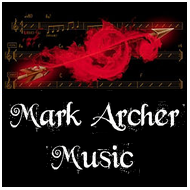 | ||||||||
|
| ||||||||
|
|
|
Ten Top Live Gig Tips (in no particular order) 1. Happy Birthday. If you're going to be gigging in bars, pubs, restaurants, functions etc., you should be able to play (by heart) the tune of Happy Birthday in as many keys as you can manage. In about half of your gigs, someone somewhere somehow is going to request it and you're gonna look and feel a bit of a prannet if you can't oblige. 2. Tuning. Intonation is always a live issue when playing with other musicians. You need to take responsibility for it. The saxophone is a variable tuning instrument - the player can manipulate the intonation of the instrument by mouthpiece placement and/or by embouchure control. To help you improve your intonation chromatic tuners with an LED or dial display can be useful. However, in your practice periods, concentrate on tuning your sax by ear to a pitch pipe or pitch fork or tuning CD. In a live gig, you may have to play alongside an out of tune piano, a tone deaf bass player (just kidding!) or a guitarist who prefers to tune sharp. So you have to get used to being flexible with your intonation to meet the demands of the particular playing situation you're in. 3. Extra Kit. Make sure you bring extra, playable reeds to the gig. And if you're being canny, bring an additional mouthpiece and an extra sling. This may sound a little over-cautious, but nothing is as awkward as sitting out a gig because you're just dropped (and ruined) your favourite New York Otto Link or because your sling just won't....um...sling. 4. Check the gig details. Before you set out for Carnegie Hall or Ronnie Scott's, double-check the location, set-up time, start time, dress code, stipend and any other pertinent details of the gig. Don't be late, don't be inappropriately dressed, don't get lost on the way. 5. Written contract. If you are the band leader, ensure that you have a written, signed contract with the customer. (Off-the-peg music contact forms can be downloaded from the internet if you don't want to invent your own.) This will go some way to protect you and your customer from misunderstandings, false expectations and possible grand larceny. 6. Tailor your music. Most working musicians perform in a variety of venues to a variety of audiences. Where it's sensible, tailor the style, volume and pace of the music to your audience. If, for example, you are playing at a retirement home, then a full-throttle version of 'Smells like Teen Spirit' may not be appreciated. 7. Microphones. Yeah, well. These are, at times, a necessary evil. If you have to be miked up, insist on a personal sound check (no matter how brief). On stage, you do not want your peerless saxophone tone to sound like a fart in a colander. Don't trust any sound engineer who says that you don't need a sound check cos he's done saxophones before and he's got an HND in Mus Tech from Scunthorpe College and, anyway, he needs time to mike up the drum kit .... 8. Business Cards. If you don't have business cards, get some now. Carry at least two kinds. One bunch advertises your band and the other should advertise your individual product. Leave them on tables, offer them to interested members of the audience, give some to the venue owner and/or promoter. Do some business ...you never know. 9. Courtesy. At all times be courteous and forgiving of bad audiences, crap venues, tone-deaf pub landlords and function marquees. But....know your worth. To become a skilled professional musician takes a longer apprenticeship than to become a doctor, lawyer or hedge-fund manager. Although you should possess some degree of forbearance, you can reasonably expect, in return, a modicum of respect for what you do. 10. Enjoy. Finally, try to enjoy the entire experience of gigging - the music, the audiences, the venues, the buzz, the glamour and the adulation. (OK skip the last two). Don't get overly anxious about gigging. Don't stress the small stuff (and it's all small stuff). You'll make mistakes, of course, everybody does. But nobody has ever died from a ruptured sharp nine chord or been taken into casualty with an impacted tritone substitution. Don't sweat it, it's only music and even if it does dominate your waking and dreaming thoughts it is still just 'noyses sounds and sweet aires' (The Tempest, Act 3, scee 2). Good Luck! |
|

|

|

|

